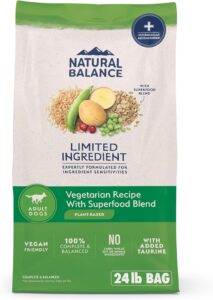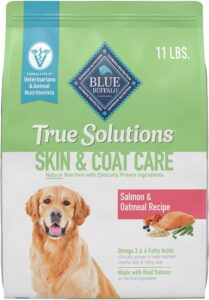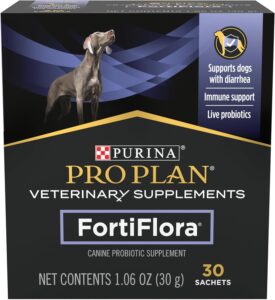
Dogs, much like humans, can experience a variety of digestive issues. Sensitive stomachs in dogs can result from numerous factors, including food allergies, intolerances, or an imbalance in gut flora. As a responsible pet owner, it’s important to identify these issues early and select dog foods that cater to sensitive stomachs. This article discusses expert-recommended dog foods specifically formulated to help manage and alleviate digestive problems in dogs with sensitive stomachs.
Understanding Sensitive Stomachs in Dogs
Common Causes
There are several reasons why a dog might have a sensitive stomach, including:
- Food Allergies: Some dogs have allergies to certain ingredients like beef, chicken, dairy, or grains.
- Food Intolerances: Unlike allergies, intolerances generally involve digestive issues rather than immune responses. Common intolerances include lactose or gluten.
- Changes in Diet: Sudden changes in diet can upset a dog’s gastrointestinal system.
- Stress and Anxiety: Emotional stress can also lead to digestive problems in dogs.
Symptoms of a Sensitive Stomach
Recognizing the symptoms of a sensitive stomach can help in timely action. Look for signs such as:
- Frequent diarrhea or loose stools
- Vomiting
- Excessive gas
- Reduced appetite or food refusal
- Abdominal pain or discomfort
Key Ingredients in Dog Foods for Sensitive Stomachs
When selecting a dog food for sensitive stomachs, consider the following key ingredients known to promote digestive health:
- Novel Proteins: Proteins like lamb, duck, or fish are often easier on sensitive stomachs compared to common proteins like chicken or beef.
- Prebiotics and Probiotics: These ingredients support healthy gut flora, improving digestion and nutrient absorption.
- Easily Digestible Carbohydrates: Ingredients such as rice or sweet potatoes offer energy without causing digestive stress.
- Omega-3 Fatty Acids: Found in fish oil, these can help reduce inflammation and promote overall gut health.
Top Dog Foods for Sensitive Stomachs: Expert Picks
1. Hill’s Science Diet Adult Sensitive Stomach & Skin
Hill’s Science Diet is often recommended by veterinarians for dogs with sensitive stomachs. It features prebiotic fiber to support a balanced gut microbiome. The primary protein source is chicken, while it excludes corn, wheat, and soy to minimize food sensitivities. Omega-6 fatty acids and vitamin E also work to nourish the skin and coat.
2. Royal Canin Veterinary Diet Gastrointestinal Low Fat
Especially beneficial for dogs with sensitive stomachs and pancreatitis, this formula provides a low-fat, highly digestible diet. It includes prebiotic fibers, omega-3 fatty acids, and antioxidants to promote digestive health. Note that this is a prescription diet, so consult your veterinarian before switching.
3. Purina Pro Plan Sensitive Skin & Stomach
This formula is crafted with salmon as the primary protein source, making it ideal for dogs with sensitive stomachs and skin issues. It includes oatmeal, which is gentle on the digestive system, and sunflower oil, a rich source of omega-6 fatty acids. Additionally, it contains live probiotics to support digestive health.
4. Blue Buffalo Basics Limited Ingredient Diet
Blue Buffalo Basics is formulated for dogs with food sensitivities, featuring a limited ingredient list to minimize potential allergens. The primary protein source is a single animal protein like turkey or lamb. It also includes easily digestible carbohydrates such as potatoes and pumpkin, known for soothing the digestive tract.
5. Nutro Limited Ingredient Diet
Nutro’s offering is designed to be simple and digestible, with 10 key ingredients or fewer. Lamb or venison are common protein sources, paired with brown rice for its gentle nature on the stomach. It’s also free from GMO ingredients, artificial colors, flavors, and preservatives.
6. Wellness Simple Limited Ingredient Diet
This formula focuses on simplicity, featuring a single source of protein and easily digestible carbohydrates. It’s enhanced with flaxseed to provide essential fatty acids and promote a healthy coat. The formula avoids fillers and artificial additives, reducing the likelihood of digestive upset.
Transitioning to a New Dog Food
When introducing a new dog food, especially for sensitive stomachs, a gradual transition is crucial to prevent further digestive issues. Follow these steps:
- Start by mixing 25% of the new food with 75% of the old food for the first few days.
- Gradually increase the proportion of the new food over a week or more, until the old food is completely replaced.
- Monitor your dog’s reaction. If any adverse symptoms appear, consult with your veterinarian.
Conclusion
Managing a dog with a sensitive stomach requires patience and attention to dietary details. By choosing high-quality, expert-recommended dog foods designed for sensitive stomachs, you can alleviate discomfort and promote better overall health for your canine companion. Always consult with a veterinarian to ensure that the chosen diet aligns with your dog’s specific health needs. With the right care and nutrition, your dog can enjoy a happy, healthy life free from digestive distress.
#ChatGPT assisted in the creation of this article.















